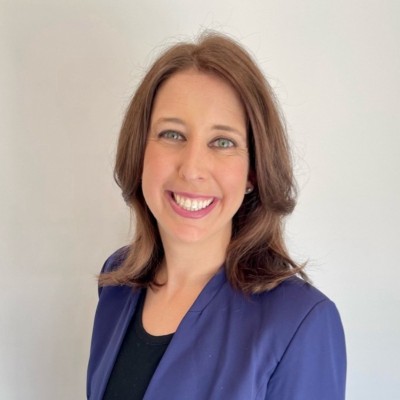Book Club: Ian Mills on the Secret Behind What Makes a Salesperson Great
1.9K View | 27 Min Read
Olivia Fuller: Hi and welcome to Book Club, a Sales Enablement PRO podcast. I’m Olivia Fuller. Sales enablement is a constantly evolving space and we’re here to help professionals stay up to date on the latest trends and best practices so they can be more effective in their jobs.
What is it that truly makes a salesperson great? This is an age-old question that sales organizations have been trying to answer for years and the good news is that there might now actually be an answer. The book, “The Salesperson’s Secret Code” details some extensive research outlining the beliefs, attitudes, and behaviors that lead to high performance. I’m so excited to welcome one of the authors, Ian Mills, to the podcast today to tell us a little bit more about the findings. With that, Ian, I would love it if you could just introduce yourself to our audience and tell us a little bit more about the book.
Ian Mills: As you say, I’m Ian. I live just outside London. I’ve been lucky enough in my career to have worked in, I guess something like 60 countries around the world helping organizations to perform better. Hence the book came as a result of a lot of that experience and really wanting to delve into the belief systems that set top performers apart. I’ve been selling for over 40 years. I’m giving my age away. I’m 60 years of age, I’ve got three daughters, I’ve got two grandchildren. I’m an avid football supporter. Enough about me, let me see what I can do to help your listeners.
OF: Fantastic. Well, as you mentioned, the book is based on extensive research digging into those beliefs and behaviors that are linked to top performance for salespeople. Throughout that research, I’d be curious to learn what really surprised you most about the results that you found?
IM: Well, was it a surprise? Maybe not, but it was a concern. I don’t come from an academic background. I come from a practitioner background. As I said, I’ve been selling now for some 40 years. Like probably many of your listeners, I think I’ve been there and done it and therefore know what makes a great salesperson. But when you embark upon research, my academic colleague, Professor Ben Laker, said actually, once you can have a hypothesis, we do not know what the answer will come out of in terms of the outcome of the research. The scary thing is you have to invest significant hours and money in order to prove or disprove your hypothesis. We didn’t know whether there would be a secret code or a formula or a recipe for success. That was a little bit of a worry, because a year into the research, we still didn’t know whether there was a formula. So I guess I’m giving it away in the sense that the book has been published, there absolutely is a secret code, there is a common underlying belief system that binds top performers apart. It wasn’t a sort of surprise, but it was a worry that we would waste our energy, our effort, our time in something that actually couldn’t really be proven.
OF: Absolutely. You mentioned that investment of time and you really did conduct some very extensive interviews with really iconic salespeople for the book as well. I’m curious who really stood out for you in those interviews?
IM: In the formal research, we interviewed about 1000 salespeople across different vertical markets internationally in order to get the data to evidence the code, and then what we did is we thought, “well hold on, we’re trying to write a book here.” Books based on data have the risk of being really quite boring. What we thought we would do is go find some iconic salespeople, many of whom are now in leadership roles. But if you believe the argument that everybody sells, of which I do – so leaders sell, parents sell, we all sell because we’re all trying to influence others towards a desired outcome – let’s go find some exceptional people.
What’s really interesting about exceptional salespeople is none of them are perfect. I often use the metaphor of golf, it doesn’t matter whether you play it, you’ll get it. I’ve never met anyone who’s perfected golf, they’re scratch golfers, great golfers, but they will have bad days. The great thing about sales is that nobody has perfected it so everybody can learn. Even though we found these iconic people, none of them would claim to be perfect. One that I found really interesting was a lady called Erica Feidner from North America. I came across her in an article on Inc.com, and Inc.com said she’s one of the best 10 salespeople of all time, and I think half of them are dead now. Given that she was one of the very few that were alive, we interviewed Erica. It’s quite unusual she sells: Steinway Pianos. If you think about the top of musical instruments, that is Steinway Pianos for you. Most of the famous rock stars, Elton John for example, would play a Steinway piano.
In her heyday, Erica would sell 20 times as many Steinway pianos as the average seller. So clearly there was something magical about what she did. What was really interesting about Erica is from an identity point of view, she wouldn’t describe herself as a salesperson. She would describe herself as a piano matchmaker. She had this deep-rooted passion to make people’s dreams come true. If you can imagine an individual who maybe doesn’t even play the piano, but dreams about having a piano in their dining room and inviting their friends and family around and playing music, she will go on a quest to help them get there. It might take her a couple of years but they will buy a piano from her, they will learn from her, they will have that dinner party. I thought she was a brilliant exemplar around somebody who creates a unique experience, different experience and you sort of think about, “well, if I engaged with her, how could I not buy from her?” I kind of liked it but I like all of them. I think they were all in their own different ways quite exceptional individuals.
OF: Yeah, I love that mindset of being a piano matchmaker. That’s so unique, and that relates to the core foundational point of the book which is that beliefs drive behavior. You cover five core beliefs that really do play that massive role in influencing success, so fulfillment, control, resilience, influence, and communication. Can you explain to our audience a little bit more why these core beliefs are so important to a salesperson’s success?
IM: We could have done more but there’s a point in which you’ve got to stop, we’re trying to make something manageable, bite-sized and we’re trying to focus on things that make a significant difference. In our desktop research, we didn’t literally come up with those labels but all of the themes that seem to make a difference in importance to people were those five. They’d be language in different ways and contextualized in different ways, but if a salesperson aligned themselves to those five destination beliefs in a similar way to a top performer, the likelihood is that they’re going to be right at the top of their game. We have long evening debates about if we should do a little bit more, where do we take it, but our experience is that those five have resonated incredibly well.
OF: Absolutely. You also discuss the different attitudes or as you describe them in the book, journey motivators that salespeople can really have towards those core five beliefs. I’m curious if you can tell us a little bit more. How does a salesperson’s mindset when it comes to those core beliefs really influence their ability to perform or to underperform?
IM: It goes back to a comment you made a little bit earlier. The psychology is quite simple. The beliefs that you hold cause you to behave in the way you behave, the way you behave causes you to be the success that you are or are not. The trap that many organizations fall into is that they try and change people’s skill and behavior without changing their underlying belief system and then they wonder six months later, why it’s failed. The reason it’s failed is that they haven’t changed the person’s attitude, changed their mindset, changed their way of thinking.
Let me give you a slightly British example, but your listeners will get it. The first man to run a four-minute mile was Roger Bannister a long time ago. Now, we all know that what was more interesting is how many people ran it the year after. What was more interesting than that is why did they run it the year after, not the year before? I can tell you why. They would have sat on their sofa with their family the year before saying that nobody will ever run a four-minute mile and they were proven correct until Roger Bannister ran it. The following year, they sat on their sofa and said to their family, “somebody’s just run a four-minute mile, I’d better up my game and do just that.” Nothing changed in terms of equipment, nothing changed in terms of training techniques. The only thing that changed is their brain went from it can’t be done to it can be done.
I’ll give another little example of ability. Here’s a classic belief of successful people, successful entrepreneurs, successful salespeople. If someone can do it, I can do it. What I mean by that is, let’s take a sales organization with 1000 people. There must be a top salesperson, or top 10. Whatever it is, let’s just imagine it as a top salesperson. I could hold a belief that I could be that number one now, I can’t flick a switch and I can’t be it overnight, but if I really believe that I can be the number one, then what I’m going to do is go on a journey of learning, developing, educating myself, finding out how they got there and finding my journey to that destination. It might take me five years, it might take me 10 years, but I can get there. If I hold a belief that I’m in the wrong city, I’ve got the wrong territory, I’ve got the wrong account, my leader doesn’t help me, the competition are better, then we are then a little bit like the runners. I’ll sit on my sofa saying he had luck or she had luck. Those little examples will illustrate the importance of getting your mindset aligned to the art of the possible.
What’s the worst that could happen? I hold the belief that because she’s number one, I can be number one. In five years’ time, I’ve not quite made it, but I’m in the top 10. I’ve shifted from being 100 to a top-10 performer. I haven’t quite got there, but I got very, very close to it. What I’m not saying is that this individual should ignore knowledge and skill. They should absolutely hone those things. But if you’re a sales leader or if you’re in sales enablement, if you want to help an organization transform performance, focus on the mindsets and the beliefs because by doing that, you will also help them develop skills.
Let’s imagine I’m a salesperson in that sales organization. The first thing I’m going to do is phone up the top performer and I’m going to learn what they did. Then, I’m going to come away with a whole series of actions that are going to be incredibly hard work. I’m going to read books. I’m going to go on podcasts. I’m going to do things that I’ve never done before that scare the living daylights out of me, but might propel me forward, as opposed to I’m going to sit back and wait until sales enablement puts me on a training course. I’m going to take accountability and ownership of my own progression regardless of what they do for me. So, therein lies a clue to the best of the best they take ownership and accountability.
OF: I love what you said about having the mindset of the art of the possible and as you said, that mindset is what drives behavior. Those behaviors and skills are still important. If you were to pick one of those difference-making behaviors that really does set top performers apart, I’m curious what would that be for you?
IM: In my opinion, it is insatiable curiosity. There’s simplicity behind that, but also complexity behind that because what I’m saying is become a master at asking questions and listening. If you think about any sales individual or organization that misses their quota and they look back, the reason why they generally missed their quotas is that they didn’t find out what they needed to do to win, they didn’t uncover the problem, they didn’t understand what the competition were doing, they didn’t understand what motivated their client. They missed things either through their poor questioning or their lack of ability or willingness to listen to what’s being transmitted towards them. What I mean by that is more than the words, listening to the vibe, listening to the atmosphere, listening to the body language. I think that is insatiable curiosity.
Here’s the linkage behind the books. You’ve got to believe that actually that is game-changing, and if you believe that is game-changing, you can learn to become the most skillful questioner and listener that the world of sales has ever seen. Go on a journey of mastering the art of how you can be exceptional at doing that very thing. I think behaviorally that’s the difference that makes the difference. A very good friend of mine we interviewed in the “Leader’s Secret Code” is a military leader and he’s got a brilliant phrase. His phrase is “Be interested, not interesting.” If you think about the old world of sales, if you wind the clock back 20 years ago, salespeople needed to be outgoing, fun, and wear their heart on their sleeve. I’m not saying that’s a bad thing, but they would talk. We would say in the UK they would talk for England.
The modern salesperson needs to be curious, listen, and get intimate with the client and their world, their truth, and their reality. It isn’t about the salesperson and their product, it’s about the client or the customer’s issues – the very things that they need and want. You can only get there if you’re well-prepared, sufficiently curious, and sophisticated in the way you uncover all of those kinds of issues. That’s a long answer to a really simple question: be curious.
OF: I love that advice. You mentioned enablement a little bit ago, but I’d love to dive into that a little bit more here since our audience is a lot of sales enablement practitioners. What really is enablement’s role here and helping to instill some of those motivators and some of those behaviors among the sales teams that they support to really improve that consistent performance?
IM: Some of this will be a matter of opinion and personal experience. Sales enablement is viewed in different ways in different organizations and different vertical markets. So one sales director or senior vice president (SVP) of sales will describe it in one way and somebody else in a completely different way. That’s the same in every function, whether you’re an HR leader or whether you are an IT leader – every leader functionally has frustrations. In my opinion, sales enablement needs to become trusted advisers to the executives in the organization. Obviously the sales director, but other business executives, people who own the profits and losses, or people who own the profit. If you’re going to become a trusted advisor to those key budget-holding executives, a trusted advisor will share wise counsel or provide insight and will be a thought leader. Therefore, what I mean by that is it’s not about having your recipe and giving them a pick list of what they need. You need to immerse yourself intimately with what levers should be pulled that will be the difference that makes the difference.
Changing the belief system may be on the list, but actually, putting a CRM system in might have greater impact. How do you want to prioritize it, how do you attribute value, but how do you get those leaders to understand the value that you deliver? Given the fact that you will coach the sales organization that value-based selling is what they need to be doing, internally, you need to be doing the same. You need the sales director talking about the value that you’ve delivered, the difference that you’ve made, because that then gives you a seat at the table.
What that then means is that if you believe that changing the mindset, changing the culture, changing the belief systems is the difference that will make the difference, then you’re probably not going to be able to do it on your own. You probably need to partner with people who can facilitate that process and you also need to be brave because it’s quite easy to implement a technology platform. I don’t mean that literally, but it’s easier to implement a technology platform than it is to change the mindset of people or fight the battle of “well, why don’t we just replace salespeople”. Recalibrate the way they view the challenge or the problem or the ambition of the organization. If you can do that, you can get individuals to double their performance. Most people have the talent within, but what their leaders fail sometimes to do is to extract that talent and get the most out of them.
OF: I love that advice that’s so spot on to where enablement can really make a difference here. I do want to also go back to something that you mentioned as well which is that enablement can’t do it for salespeople. They can’t unlock that performance solely on their own, salespeople need to take ownership and have that accountability to shift their beliefs and their behaviors as well to improve their own performance.
In the book, something that I found really interesting is that there’s an accompanying psychometric test that salespeople can take to really see where they fall between that low and high performance. Can you tell us a little bit about how having that knowledge can really help salespeople be able to shift their beliefs and take ownership of their own performance? What does the organization need to do to help support them in doing that?
IM: If you think about the three legs of the stool, changing knowledge is easy because that’s studying. Changing skills is easy because that’s practice. Changing people’s mindset is very difficult because often their attitude is deep-rooted and it’s built up over many years. You can’t flick a switch and get people to think differently and often executives get that wrong. They run a conference, they present what the new world will look like. Everybody puts their hand in the air that they agree with it and does nothing about it. You have to coach, you have to mentor, you have to use a whole series of things in the kit bag to get people to the destination.
For example, I’ve used metaphor in this conversation, little stories, so you have to use stories, you have to build examples, you have to build models, you have to build case studies, you have to prove to people and evidence that people should put their toe in the water because actually it’s a lot warmer than they imagine it might be. Then, you have other instruments, so you mentioned our psychometric benchmarking tool.
It’s a proper psychometric tool. People go online and they spend half an hour completing a questionnaire around their attitude and beliefs and it generates a 20-plus page report. What that report does is it benchmarks them against the research findings. What it will do is say, “hey, you’re right on the money here and you’re right on the money there, but actually one of the things that you might want to start to think about is readjusting the way you go about influence, the way you go about communicating, and here are some tips and things that you might want to consider that will get you to that destination.” Then, if the sales leader recognizes and believes that this is the difference that makes the difference, then they will help that individual through coaching and through mentoring and practice to get to the desired state. The psychometric is a very clever way of laser-focusing on where the individual needs to consider adjusting their perspective around how they do what they do.
OF: That’s fantastic advice. Ian, this has been such a fantastic conversation. I just have one final question for you. With the way that the sales environment has changed so much in the past couple of years, how do you really see these five beliefs that we’ve talked about continuing to be essential in this new kind of virtual hybrid environment today and then maybe how do you even see them evolving in the next year and beyond that?
IM: I can tell you that we know because we’ve been using the psychometric instrument throughout the pandemic period or however you might describe the last few years. We’ve seen the way data moves and we’ve seen what it means and we’ve also through engagement with our clients, understood where they encounter problems. I’ll give you a good example: a salesperson might say that working from home environment, the lockdown environment, “I’m really good face-to-face, but I really struggle on this Zoom and Teams environment.” When they express that kind of language, however it is delivered, they’re holding a belief. They’re talking about the underlying belief system, “I’m good like this” and “I can’t do it like that.” That’s a classic example of when it’s not about their skill, because actually, we know that selling through a computer is quite easy but they have a barrier up. They have a mindset issue that I won’t be able to perform in this kind of environment. You’ve got to change that attitude and that will then mean that they’ll be open to learning how they might sharpen their swords in that environment.
The other one that I think is really quite important is around resilience. The two journey motivators from a resilience point of view are that top performers focus on both working hard and working smart. But what we know is the top 5% invest a greater level of energy and working smart than they do working hard. Again, in a virtual environment or a hybrid environment, you’ve got to absolutely be more creative around the way in which you operate to get to your desired outcome. That goes hand-in-glove with my example a moment ago. I think the way you rethink how you might operate in that hybrid world is really essential, but you’ve got to be open-minded to do it. You’ve got to believe that you can be good. You’ve got to believe that you can really learn. You’ve got to believe that you can model others, and you potentially can be exceptional because whichever way you believe, if you believe you can, you’ll get there. If you believe you can’t, you’ll be proven correct, you won’t.
OF: I love that, that is wonderful advice, and thank you so much Ian for sharing all of this expertise with our audience. I know I learned a ton from this conversation and I know our audience will too, so thank you again.
IM: Thank you. I enjoyed it. The time has flown, incredible.
OF: To our audience, thanks for listening for more insights, tips, and expertise from sales enablement leaders visit salesenablement.pro and if there’s something you’d like to share or a topic that you’d like to learn more about, please let us know. We’d love to hear from you.














